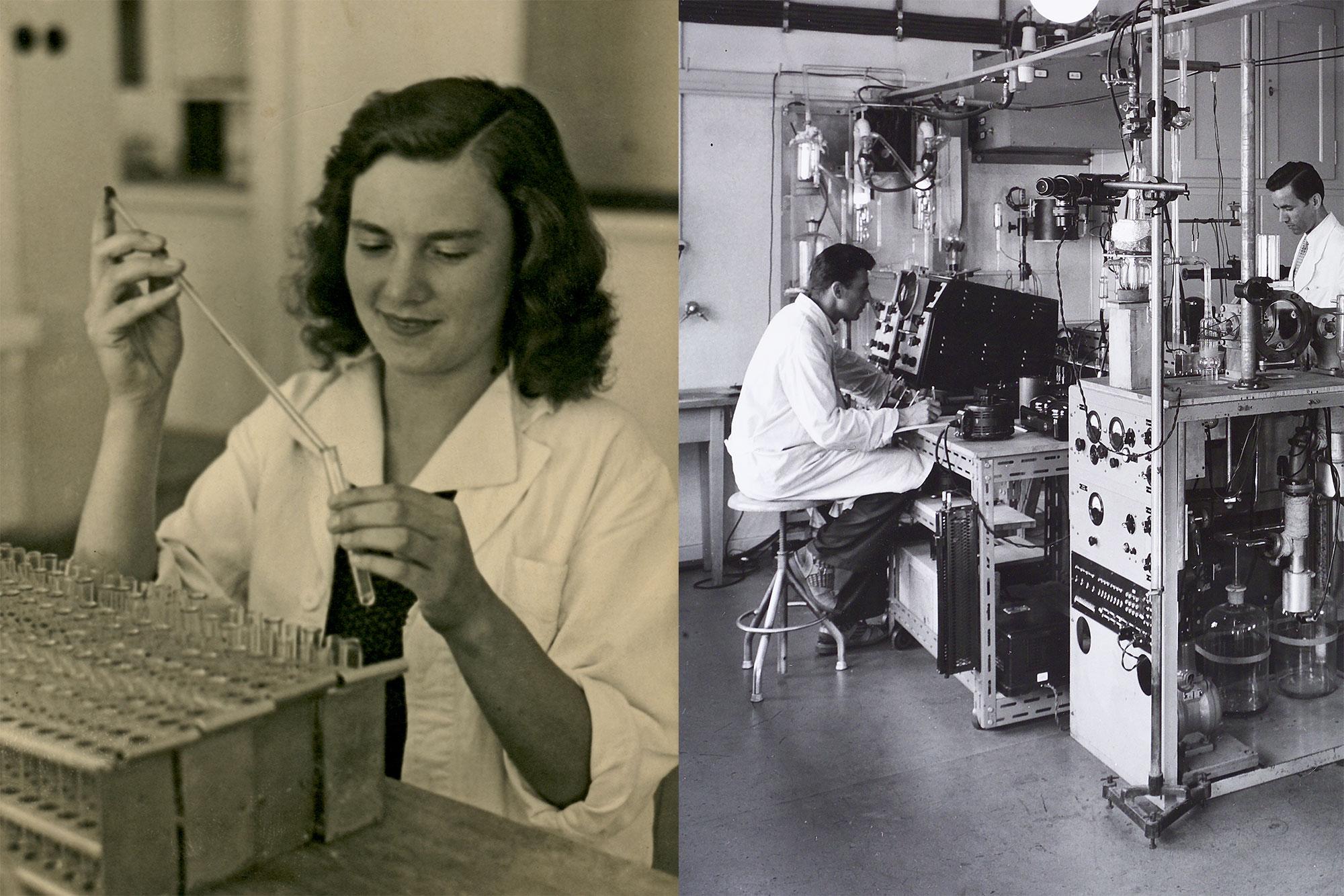History

For more than 70 years, the SNSF has invested in researchers and their ideas. The organisation was founded in 1952 following concerns that Swiss research might sink into mediocrity. Today, it supports around 20,000 researchers.
The SNSF was founded on 1 August 1952 by the scientific umbrella organisations of Switzerland. Its main tasks were and still are providing financial support for research projects in all academic disciplines and promoting young scientists. Numerous tasks were added in due course and the range of funding schemes and measures has become broader and more differentiated.
Background
May 1945: the War had ended. Swiss researchers and industrialists renewed their relationships with their foreign colleagues. While doing so, they were shocked to see that science and technology had made enormous progress in the countries actively involved in the war, while these areas were lagging far behind in Switzerland. There was a general sense of alarm and it was felt that a major nationwide effort was needed to stop Switzerland from sinking into mediocrity. These concerns led to the founding of the SNSF.
The initiators
On the institutional side, the Swiss Natural Research Society - today's Swiss Academy of Sciences (scnat) - assumed a leading role in the creation of the SNSF. In collaboration with other scientific umbrella organisations, it defined the goals and established the Statutes of the SNSF in the 1950s. The work the SNSF was mandated to do was not meant to benefit Switzerland alone. The country had been spared the full brunt of the war, and therefore the SNSF’s founders felt it was their duty to the world, and to Europe in particular, to promote scientific research and contribute to reconstruction.
After a great personal effort from the true founding father of the SNSF, the Bernese physiology professor Alexander von Muralt, the Federal Council agreed to provide funding to the SNSF so that it may achieve its goals. Professor von Muralt was the chief author of the petition submitted to the Federal Council and parliament, which paints a dramatic picture and describes the situation at the beginning of the 50s as worrying:
"The funds available in Switzerland today are insufficient and too fragmented to support, alongside outstanding individual achievements, the development of independent young scientists and a bedrock of successful science personalities, as is increasingly becoming the rule in other countries."
On 26 October 1951, the Federal Council submitted to parliament a dispatch on the awarding of federal funds to the "Swiss National Science Foundation".
Foundation
The Swiss National Science Foundation was founded in the chamber of the Council of States on 1 August 1952 in an official ceremony. The fact that two Federal Councillors - Etter and Feldmann - were present at the inauguration ceremony showed just how much importance the federal authorities attached to the founding of the SNSF.
Key dates
- 1952 The SNSF is founded
- 1960 Award of the first science prize
- 1966 Reorganisation of the National Research Council into three divisions: Humanities; Exact and Natural Sciences; Biology and Medicine
- 1974 The first National Research Programmes
- 1975 Creation of a fourth division within the Research Council: National Research Programmes
- 1988 First issue of Horizons, the research magazine of the SNSF
- 1991 Focus on promoting women: the first of the Marie-Heim Vögtlin grants - named after Switzerland's first female physician - for women resuming their scientific careers
- 1995 Inauguration of the Swiss Contact Office for Research and Higher Education, SwissCore for short, in Brussels
- 1996 Heidi Diggelmann becomes the first woman to head the Research Council
- 2001 Launch of the first series of 14 National Centres of Competence in Research
- 2014 Transitional measures during the exclusion of Swiss-based researchers from Horizon 2020
- 2020 Launch of a Special Call and two National Research Programmes on Covid-19
- 2021 Transitional measures during Switzerland's non-association to Horizon Europe
More about the SNSF